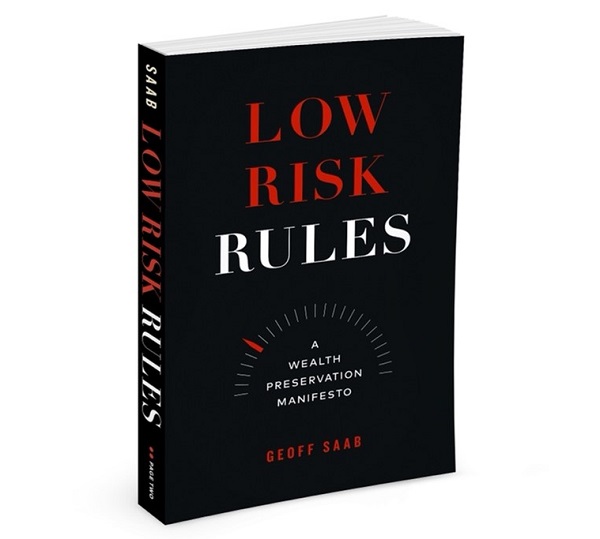One small bet on a speculative stock isn’t so bad, right?
I’ve seen all sorts of “next big things” over the years—before I knew better, many of them were in my own portfolio! Early stage biotech. Junior gold miners. Fledgling software companies. Near-bankrupt retailers primed for a turnaround. Revolutionary medical equipment manufacturers. The list goes on and on. The most speculative of them are often called penny stocks, but they can be priced far higher than a dollar. The principle is the same. I’ve seen these companies trading for hundreds of dollars per share and still retain the spirit of the penny stock.
Low stock prices seem to draw people. As the thinking goes, it’s easier for a 10-cent stock to go to a dollar than it is for a 10-dollar stock to go to a hundred.
No matter what the market price of the stock, if there’s one thing all of these companies have in common, it’s a dream of multiplying your money several times over via a great story, a promotional management team, and promises of vast riches.
Let’s call them 'lottery stocks'. They’re close cousins to the venture capital lottery tickets we talked about earlier—the promise is that this one investment could change your life.
Why it doesn't work
But historical evidence tells us that these high-risk gambles, on average, don’t pay off. There’s no definitive reason for this to be the case, but my own theory is that the lottery ticket aspect of these stocks makes them extraordinarily attractive to speculators, which means their value gets bid up higher than it should. For some reason, this is often worse with the lowest-priced stocks. (And if you doubt this, ask yourself if you would stop yourself from buying a stock if it cost you 11 cents a share instead of 10 cents a share, and then ask yourself if you would do the same for a stock that was $110 versus $100. We rationalize away the cent as meaningless, even though the difference in both cases is a 10% premium.)
So let’s say you’re behaving yourself, holding a portfolio that is 98% made up of intelligent, blue-chip, quality companies. You’d like to gamble with that last 2%.
And I won’t stop you. I’ve done the same. But before you go ahead with it, consider the potato chip.
When’s the last time you had just one?
You see, the lottery stock purchase is a lot like a slot machine. Have you ever seen anyone pull once and walk away?
So let’s play out a couple of possible scenarios.
You could bet on the lottery stock and lose. You told yourself you would just walk away. But that doesn’t happen. Prospect theory tells us that “a person who has not made peace with his losses is likely to accept gambles that would be unacceptable to him otherwise.” So after experiencing a loss, we are more likely to take on another large risk in order to recover that loss. Many of us know a person who has gone on tilt, emptying their bank account in a disastrous casino adventure. Some of us have even been that person. This phenomenon explains it.
On the other hand, you could bet on that lottery stock and win. In this case, overconfidence bias takes over. You’re more inclined to take on that risk again. You might begin to think that the lottery stock game is easy, or that you have some sort of system or specific insight that works. The technical term for this is 'dumb luck', and while I’ll certainly take it, I wouldn’t bet that it will continue in the future. Over time you are likely to give back all of your winnings.
Another possible outcome is that the stock does nothing. It might vacillate between 5 and 15 cents for years. It might occasionally pop to 30 or 40 cents—and you won’t sell, of course, because you think it could be the start of a huge move… until it drops back down to 10 cents. As the lottery stock languishes, you grow bored of the story, and years later just sell the damn thing to get it out of your portfolio. If you’re lucky, you’ll break even on it. It wasn’t worth the opportunity cost of the money invested in it, or the time and mental bandwidth you wasted on it.
I get it, I've lived it
And what makes me an expert on lottery stocks? I’ve done everything I’ve just described. Been there, done that. Experienced the overconfidence, the disappointment, and the boredom. Over the years the only people I’ve seen reliably get rich off of these stocks are the ones issuing shares to themselves and selling them to people like you and me. It’s a shady group of characters you wouldn’t trust to return your pen after you lent it to them, let alone manage a company you own a piece of.
Once again, our behavioral foibles work against our best interests. If you’re trying to eat healthy, don’t fool yourself into thinking you can have just one or two potato chips. And if you’re trying to invest intelligently, do your best to resist the call of the lottery stock.
Geoff Saab is the author of Low Risk Rules: A Wealth Preservation Manifesto, and writes a free newsletter at lowriskrules.substack.com.
